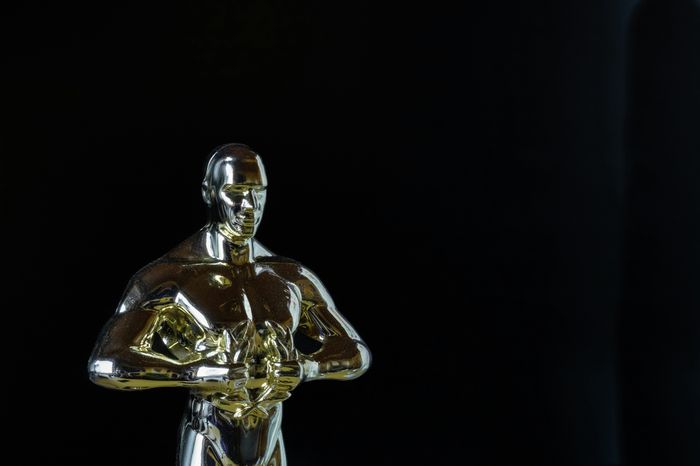Classic films that the Oscars overlooked
From Singin’ in the Rain to North by Northwest, the Academy has consistently undervalued comedies and thrillers

Everyone knows the story of Citizen Kane. Now considered one of the greatest films of all time, Orson Welles’ classic tale of an American media baron was a flop at the box office and the Academy. Citizen Kane won just one of the nine Oscars for which it was nominated, and lost the battle for Best Picture to mining drama How Green Was My Valley (ever heard of it?). This tale is a familiar one. All too often, juries ignore films that later become beloved classics. A quick stroll down Hollywood’s Walk of Fame reveals a cornucopia of cinematic confections that were snubbed by those who should’ve known better…
Bringing up Baby (1938)
A sharp, screwball comedy about a rich heiress and her leopard, Bringing up Baby was such a flop that its lead Katharine Hepburn (often considered history’s greatest actress) was branded “box office poison” by the Independent Theatre Owners Association. Indeed, the film was wholly overlooked by the Academy despite now being regarded as a classic of the genre. Hepburn’s co-star, the legendary Cary Grant, never won an Oscar and was snubbed for his roles in two other classic comedies (His Girl Friday and The Philadelphia Story) – early signs of the Academy’s infamous blindness to the genre. Such was Grant’s disappointment that he later boycotted the Academy. Only in 1970 (nearly 40 years after his acting debut) was he afforded long-overdue recognition in the form of an Honorary Oscar.
Singin’ in the Rain (1952)
Not just one of the greatest musicals, but arguably one of the greatest films of all time, this portrayal of a group of performers singing and dancing their way through Hollywood’s transition to “talking pictures” was nominated for just two Oscars (Best Supporting Actress and Best Scoring of a Musical Picture) and won neither of them. The Academy’s biases struck again – across 96 years of Oscars history, only ten musicals have won Best Picture. The award that year went to circus drama The Greatest Show on Earth, whose glamour and big budget dazzled audiences and jurors alike. However, the sentimental melodrama has since been labelled the “worst Best Picture Oscar winner” by The Independent.
North by Northwest (1959)
Often cited as the inspiration for the James Bond films, North by Northwest contains some of the most iconic scenes in film history, including Cary Grant being chased through a cornfield by a psychotic crop-duster. However, the film won nothing at the Oscars or the Globes, despite several nominations. Indeed, director Alfred Hitchcock never won an Oscar, suggesting that the Academy had no more time for his “cheap” thrillers than it does today for blockbusters like Ocean’s Eleven or Paddington (Greta Gerwig, take note!). When he was awarded an Honorary Lifetime Achievement Award in 1968, Hitchcock’s speech was hardly effusive, comprising just five words: “Thank you… very much indeed.”
Audrey Hepburn in My Fair Lady (1964)
George Cukor’s musical retelling of Bernard Shaw’s classic Pygmalion dazzled the judges with a clean sweep. The film won eight Oscars and three Golden Globes, including Best Picture, Best Director and Best Actor (for Rex Harrison’s turn as a dyspeptic professor of phonetics) at each ceremony. Audrey Hepburn, however, wasn’t even nominated for her spellbinding performance as Cockney flower seller Eliza Doolittle. Seemingly, the decision to cast Hepburn instead of Julie Andrews, who played the role on Broadway, was unpopular – indeed, it was Andrews who won Best Actress at the Oscars and the Globes that year for her role as Mary Poppins.
This list seems to confirm what Cary Grant suspected - that the Academy has long been biased against certain genres. Epic dramas and interminable biopics like Gone with the Wind, Lawrence of Arabia and, most recently, Oppenheimer, have always dominated awards ceremonies, where seriousness is too often taken as a proxy for quality. But, if you want to make an all-singing, all-dancing comedy or a gripping thriller, you might as well kiss goodbye to hopes of winning the top prize.
Why then have so many “snubbed” films later become beloved classics? Lighthearted films showcase the talents and versatility of many of the iconic stars now synonymous with classic cinema, whose charm lay in their authenticity, style and sophistication. In an age that values earnestness and emotional performances, Cary Grant’s understated wit, Gene Kelly’s fancy footwork and Audrey Hepburn’s magnetic exuberance are endangered species – and all the more beloved for it!
 Music / The pipes are calling: the life of a Cambridge Organ Scholar25 April 2025
Music / The pipes are calling: the life of a Cambridge Organ Scholar25 April 2025 News / Candidates clash over Chancellorship25 April 2025
News / Candidates clash over Chancellorship25 April 2025 Interviews / Dr Ally Louks on going viral for all the wrong reasons25 April 2025
Interviews / Dr Ally Louks on going viral for all the wrong reasons25 April 2025 News / Cambridge professor paid over $1 million for FBI intel since 199125 April 2025
News / Cambridge professor paid over $1 million for FBI intel since 199125 April 2025 Comment / Cambridge builds up the housing crisis25 April 2025
Comment / Cambridge builds up the housing crisis25 April 2025






